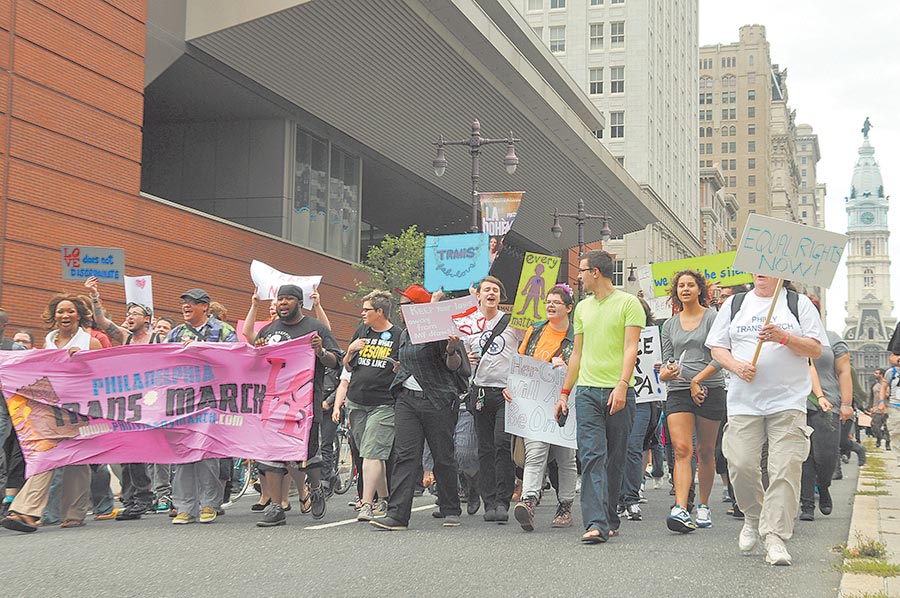Trans folks are speaking out against a Pennsylvania State Police practice of categorizing anti-transgender hate crimes by male or female “portrayal.”
State police recently posted on its website an anti-trans hate-crime incident in Philadelphia, categorized as “female portrayal.”
“We’re trans people, we’re not portraying anything,” said Julie Chovanes, a trans woman and attorney. “How can we get accurate hate-crimes reporting from the police if they see us playing a role?”
Trans people’s humanity is denied by the language used by state police, Chovanes said.
“They don’t even give us personhood,” she added. “Since they don’t give us personhood, how can they recognize crimes against us? To them, we are portrayals, caricatures. And there’s no such thing as a crime against a portrayal or a caricature.”
Trooper Adam Reed, a spokesperson for the Pennsylvania State Police, said the state’s “uniform crime-reporting program’s definitions and guidelines mirror those of the FBI,” adding that, if the FBI issued recommended changes to those guidelines, state police “would certainly adhere to those. This includes any changes that may result from the working group being looked at by the FBI.”
Chovanes expressed concern that some trans victims won’t report hate crimes due to perceived insensitivity by police.
“I’m concerned of a possible deterrent effect due to this practice, but I hope there won’t be one,” she said.
State police collect hate-crimes data from local police departments and convey the data to the FBI.
FBI spokesperson C. Michael Riley said the FBI doesn’t recommend that anti-trans hate crimes have “portrayal” categories. He also said the FBI doesn’t convey its hate-crimes data to the public in such a manner.
“The FBI’s uniform crimes-reporting program is currently collaborating with a government working group to address specific issues on reporting anti-transgender bias crimes,” Riley added. “A decision to release additional information on working with and/or reporting data on transgender victims will be addressed at a later date.”
Harper Jean Tobin, policy director at the National Center for Transgender Equality, echoed Chovanes’ concerns.
“It’s great that Pennsylvania is trying to report anti-trans hate crimes, but do it in a way that shows sensitivity to victims,” Tobin said. “[The portrayal categories] suggest our gender isn’t real. If police don’t get that, they’re going to have a hard time talking to victims and witnesses.“We already have some community-trust issues. I’d be concerned this [language] would be another chilling factor, discouraging people from reporting hate crimes.”
She said reporting the number of anti-trans hate crimes on the state-police website would be sufficient without adding “portrayal” categories.
“We’d be happy if they’d just accurately collect data on anti-trans hate crimes, without insulting the very people who’ve been victimized,” Tobin concluded.
